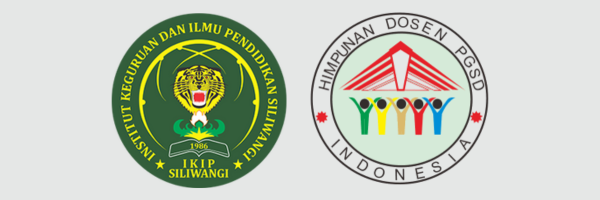Perceptions of Primary English Teachers in Indonesia on Shifting Curriculum from Compulsory to Extracurricular
DOI:
https://doi.org/10.22460/pej.v9i2.6440Keywords:
Bilingual Education , Curriculum Development , Primary School, Teacher PerceptionsAbstract
The shift of English from a compulsory subject to an extracurricular activity in primary schools, as outlined in Curriculum 2013 (K-13) and maintained under the Merdeka Curriculum, has raised significant concerns among English teachers. This change has impacted how English is taught at the primary school level. The purpose of this study is to know English teachers' perceptions of the shift, focusing on the challenges they face and the implications for their teaching practices. This study employs a qualitative approach, with participants being randomly selected, and includes online interviews with 4 English teachers in Indonesia. The findings of this study indicate that while early exposure to English is crucial for academic success and global communication, teachers argue that making English an extracurricular subject in primary school limits students' access to structured instruction and hinders consistent progress. Practical difficulties, such as limited time, resources, and varying levels of student participation, worsen the issue. Despite these challenges, the findings suggest that reintegrating English into the core curriculum would provide more equitable opportunities for all students to develop strong language skills. The study recommends policy reforms that bring English back as a core subject, recognizing it as a vital investment in ensuring consistent, high-quality language education from the start of students' schooling.
References
Agustiana, V., Thamrin, N., & Oktoma, E. (2024). The Role of English Language Proficiency in the Global Economy and Business Communication. International Journal Administration, Business & Organization. 5(4), 82–90. https://doi.org/10.61242/ijabo.24.423
Agustina, A., Saputra, A., Indranika, D., Suryoto, Kusumaningsih, O., Mamuri, J., & Pazqara, E. (2022). Increasing Digital Literacy in Realizing Golden Indonesia. East Asian Journal of Multidisciplinary Research, 1(10), 2091–2108. https://doi.org/10.55927/eajmr.v1i10.1920
Ainissyifa, H., Nasrullah, Y. M., & Fatonah, N. (2024). Empowering Educational Autonomy to Implement Kurikulum Merdeka in Madrasah. Jurnal Pendidikan Islam, 10(1), 25–40. https://doi.org/10.15575/jpi.v10i1.35133
Amin, F. (2024). Innovative approaches to addressing educational inequities lessons from indonesia’s remote learning programs. Indonesian Journal of Studies on Humanities, Social Sciences, and Education (IJHSED), 1(2), 93-109. https://doi.org/10.54783/k9rkz045
Amran, A., Jasin, I., Irwansyah, M., Perkasa, M. & Satriawan, M. (2019). Developing Education for Sustainable Development-Oriented-Character Learning Model for Indonesian Golden Generation. Asian Social Science, 15(12), 87-93. https://doi.org/10.5539/ass.v15n12p87
Baharuddin, B. & Burhan, B. (2024). Navigating Educational Reforms: Urban-Rural Divergence in Indonesian Teachers’ Experiences. Social Sciences & Humanities Open, Available at SSRN: https://ssrn.com/abstract=4885503 or http://dx.doi.org/10.2139/ssrn.4885503
Bowen, G. A. (2009). Document Analysis as a Qualitative Research Method. Qualitative Research Journal, 9, 27–40. https://doi.org/10.3316/QRJ0902027
Efendi, T. A., Prihantini, A. F., & Nurhidayah, S. (2024). Optimizing English Language Teaching in Elementary School Based on Merdeka Curriculum. JURNAL NUANSA AKADEMIK Jurnal Pembangunan Masyarakat. 9(2), 561–572. https://doi.org/10.47200/jnajpm.v9i2.2638
Ennis, R.H. (2016). Critical Thinking Across the Curriculum: A Vision. Topoi, 37, 165-184. https://doi.org/10.1007/s11245-016-9401-4
Febrianto, P. T., Mas’udah, S., & Megasari, L. A. (2020). Implementation of online learning during the covid-19 pandemic on Madura Island, Indonesia. International Journal of Learning, Teaching and Educational Research, 19(8), 233–254. https://doi.org/10.26803/ijlter.19.8.13
Fetters, M.D., Curry, L.A. & Creswell, J. W. (2013). Achieving Integration in Mixed Methods Designs—Principles and Practices. Health Services Research, 48(6pt2), 2134–2156. https://doi.org/10.1111/1475-6773.12117
Hamdi, S., Setiawan, R., & Musyadad, F. (2020). Evaluation of the implementation of Indonesia Pintar program in vocational school. Jurnal Penelitian dan Evaluasi Pendidikan, 24(1). 102-115. https://doi.org/10.21831/pep.v24i1.32603
Harits, I., Chudy, S., Juvova, A., & Pavla, A. (2016). Indonesia Education Today: Dating Back Its History of Islam and Imparting European Education System. Asian Social Science, 12, 179-184. https://doi.org/10.5539/ass.v12n5p179
Hayes, S. D., Flowers, J., & Williams, S. M. (2021). “Constant Communication”: Rural Principals’ Leadership Practices During a Global Pandemic. Frontiers in Education, 5. https://doi.org/10.3389/feduc.2020.618067
Herlambang, I., & Adri, A. H. (2024). Should We Teach English to Our Kids in Indonesia? PAEDAGOGIA, 27(2), 224-237. https://doi.org/10.20961/paedagogia.v27i2.84394
Hermanto, H., & Pamungkas, B. (2023). School and Parents Collaboration in Home Learning Service for Students with Sensory Impairments. Jurnal Prima Edukasia, 11(1), 9–15. https://doi.org/10.21831/jpe.v11i1.51614
Hieu, N. C., & Thuy, C. T. (2021). Challenges in Speaking English in ASEAN. Journal of Positive Psychology & Wellbeing , 6(2), 1622–1630. https://journalppw.com/index.php/jppw/article/view/11654
Howley, A., Wood, L., & Hough, B. (2011). Rural elementary school teachers’ technol-ogy integration. Journal of Research in Rural Education, 26(9), 1-13. http://jrre.psu.edu/
Irsyad, S., Syarif, H., & Zainil, Y. (2024). Flexible Approach In English Language Learning Curriculum Design: Optimizing Teaching In Merdeka Curriculum. Eduvest - Journal of Universal Studies, 4, 9843–9852. https://doi.org/10.59188/eduvest.v4i11.43675
Jazuly, A., & Prystiananta, N. (2019). The Teaching of English in Indonesian Primary Schools: a Response to the New Policy. Linguistic, English Education and Art (LEEA) Journal, 3, 17–25. https://doi.org/10.31539/leea.v3i1.609
Kirkpatrick A. (2012). English as an Asian Lingua Franca: the ‘Lingua Franca Approach’ and implications for language education policy. Journal of English as a Lingua Franca, 1(1), 121–139. https://doi.org/doi:10.1515/jelf-2012-0006
Marthawati, C., & Setyo, B. (2024). Learning Implementation of the Merdeka Curriculum. Jurnal Penelitian Pendidikan IPA, 10, 4342–4348. https://doi.org/10.29303/jppipa.v10i7.7247
Nukhbatunisa, N., Lubis, M. R., Zamhari, A., Khoiri, A., Triana, W., & Palejwala, I. Y. (2024). Educational model in Tzu Chi school in terms of multicultural education dimensions. In Religion, Education, Science and Technology towards a More Inclusive and Sustainable Future: Proceedings of the 5th International Colloquium on Interdisciplinary Islamic Studies (ICIIS 2022), Lombok, Indonesia, 19-20 October 2022 (pp. 128–132). CRC Press. https://doi.org/10.1201/9781003322054-21
Oktavia, R., Mirza, A.A., & Qamariah, Z. (2023). The History of Curriculum in Indonesia: A Literature Study. PUSTAKA Jurnal Bahasa dan Pendidikan, 3(4), 105-117. https://doi.org/10.56910/pustaka.v3i.701
Othman, A., Osman, K., & Othman, N. (2024). Assessment Value: A Systematic Literature Review on Assessment As, For and of Learning in School. International Journal of Academic Research in Progressive Education and Development, 13 (1), 995-1013. https://doi.org/10.6007/IJARPED/v13-i1/20725
Paramole, O.C. & Adeoye, M.A. (2024). Reassessing standardized tests: Evaluating their effectiveness in school performance measurement. Curricula Journal of Curriculum Development, 3(2), 217–234. https://doi.org/10.17509/curricula.v3i2.74535
Schleicher, A. (2018). World Class: How to Build a 21st-Century School System. https://doi.org/10.1787/9789264300002-en
Stewart, P. J., & Strathern, A. J. (2017). Language and Culture. In P. J. Stewart & A. J. Strathern (Eds.), Breaking the Frames: Anthropological Conundrums (pp. 69–78). Springer International Publishing. https://doi.org/10.1007/978-3-319-47127-3_8
Sulasmi, N. E. (2025). Can Deep Learning Provide Solutions to The Challenges of 21st-Century Education in Indonesia?. International Journal of Computational and Experimental Science and Engineering, 11(2). https://doi.org/10.22399/ijcesen.2636
Sumintono, B., Said, H., & Mislan, N. (2012). Constraints and Improvement: A case Study of the Indonesia’s International Standard School in Improving its Capacity Building. In Journal of Education and Learning, 6(1), 22-31. https://doi.org/10.11591/edulearn.v6i1.187
Suryahadi, A., Yumna, A., Raya, U. R. & Marbun, D. (2010). Review of Government’s Poverty Reduction Strategies, Policies, and Programs in Indonesia. Jakarta: The SMERU Research Institute
Suwarni, S. (2023). Curriculum Development Management: Challenges and Opportunities in the Era of Global Education. Al-Fikrah: Jurnal Manajemen Pendidikan, 10(2), 297. https://doi.org/10.31958/jaf.v11i2.11861
Tan, J. (2024). English as a Lingua Franca in Global Business: Balancing Efficiency and Cultural Sensitivity. Research Studies in English Language Teaching and Learning, 2, 96–105. https://doi.org/10.62583/rseltl.v2i2.42
Widiati, U., & Cahyono, B. Y. (2006). The Teaching of EFL Writing in the Indonesian Context: the State of the Art. Jurnal Ilmu Pendidikan Universitas Negeri Malang, 13(3). https://doi.org/10.17977/jip.v13i3.40
Zein, S. (2022). English as a subject in basic education in ASEAN - A comparative study. British Council
Zhao, Y., Zhang, G., Yang, W. (Eric), Kirkland, D., Han, X., & Zhang, J. (2008). A comparative study of educational research in China and the United States. Asia Pacific Journal of Education, 28(1), 1–17. https://doi.org/10.1080/02188790701849826
Downloads
Published
Issue
Section
License

This work is licensed under a Creative Commons Attribution-ShareAlike 4.0 International License.
The author is responsible for acquiring the permission(s) to reproduce any copyrighted figures, tables, data, or text that are being used in the submitted paper. Authors should note that text quotations of more than 250 words from a published or copyrighted work will require grant of permission from the original publisher to reprint. The written permission letter(s) must be submitted together with the manuscript.











